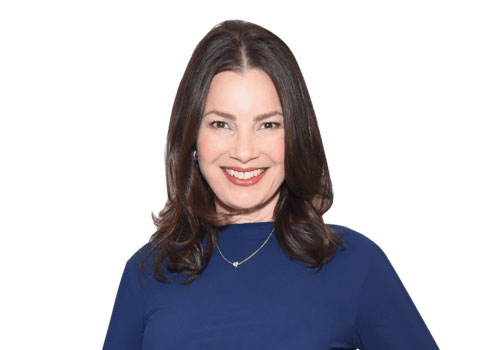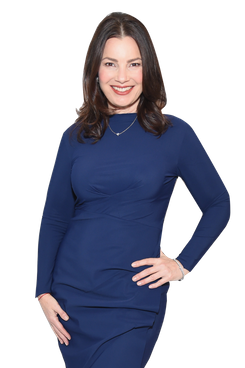
How to Be More Fabulously Radical in 2017, According to Fran Drescher

Growing up queer and Jewish, there weren’t a lot of people around me to relate to. Enter Fran Drescher, whose character on The Nanny, and the truly amazing wardrobe the show gave her, provided solace and inspiration to queer, Jewy me. For a little over a decade, Drescher flew under the radar, but over the last couple of years, she has reemerged once again. This time, she doesn’t have a sitcom – instead, her activism and her willingness to make her views public via Twitter have transformed her into a kind of cult icon for lefty queers. I recently got to chat with Drescher about how her experience with cancer influenced her activism, whether she’s actually anti-capitalist, and what we can all be doing to be a little bit more fabulously radical in 2017.
You help run Cancer Schmancer, a nonprofit that originated from your experience having uterine cancer. It’s not like other celebrity nonprofits I’ve seen: You have a Frederick Douglass quote on the website and call out the medical industrial complex.
Cancer Schmancer is, as far as health organizations go, a little bit ahead of the curve I think. We’re not trying to promise you a cure. And let’s face it, there’s been trillions of dollars put into that since Nixon waged the War on Cancer, and where’s the cure? I don’t think we’re asking ourselves the right question. I think finding the cause is the answer, but unfortunately that might cut into somebody’s profit margins. Finding a cure keeps research groups wealthy and keeps pharmaceuticals wealthy because they come up with something that helps keep you chronically ill, but seemingly asymptomatic and not really cured. I think this quest to find the cure is another brainwashing device by big business. Why don’t we just dial back all of these toxic chemicals, repurposed war chemicals we use for civilian life, everything that’s making us sick, and eliminate it? We want people to realize that you are driving this toxic, disposable, unsustainable life with your purchasing dollars.
I see everything in micro- and macrocosms, and our microbiome is way down deep inside our gut, but then the world is a big living organism, too. Everything is worlds within worlds, and I think that the answer to a lot of the woes of the worlds, including cancer, is to first begin the change within you and then within your home. We have to do that, and we have to change policy. But don’t put all your chips in that basket, because most of our elected officials are middle-management caught between the big business ruling-class elite and their constituents.
So how did you become radicalized … or I don’t even know if radicalized is the right word …
Radicalized is the right word! … I’ve been on this journey since I started my odyssey trying to get a diagnosis, getting misdiagnosed, ultimately getting diagnosed, my battle, and subsequent survival. But even before cancer, I was very opinionated and articulate about finding balance and understanding the way things work. My dad was a systems analyst, and looking at systems is a big part of how I discover what needs to be dealt with. So I started to do the Detox Your Home thing as part of my journey, and slowly and surely identifying industrial farming both of animals and plants as a problem. As that happened, I was already saying in my speeches that capitalism has run amok. It’s becoming a cannibal, and like any systemic malignancy, it forgets to die. It forgets to stop before it kills its host, thereby destroying itself. That’s what I see happening on the planet with the big-business ruling-class elite. They are so sociopathically obsessed with the money god that they’re losing sight of everything precious in its path. I always say to people, “Listen, if greed is the only language they understand, stop buying.” Stop till it hurts. Stop till your lifestyle changes, because this is unsustainable.
Then I got married and my husband was very radical along these lines and actually helped further me. And his mother was a systems analyst, ironically. We both saw things in systems, and he really was able to teach me how the body’s system has to function as a whole. We cannot look at this extremity, that breast, this testicle, this prostate, whatever, as separate things. Everything works together and by the way, it also works with the way you’re emotionalizing your life. It’s all very interconnected: the visual of seeing yourself as a thermostat of your body is very helpful. You figure out what your optimum temperature set point is at home. Let’s say it’s 70 degrees, or 72 degrees. Then the thermostat is constantly gauging all kinds of interferences that may offset that 72 degrees. Is it cold? Is it hot? Was there a big wind? Did someone open the front door? It makes the constant adjustment to try and keep it leveled off at 72 degrees. Well, that’s the way we have to start looking at our body or system. We know when we feel great. That’s optimum. When you’re happy, when you’re content, when you’re relaxed, when everything feels fine. When you’re energized, stimulated, excited, happy, all of it. When you get to that level, that’s your optimal set point. Memorize that. Then, you’re the thermostat. So, what happens? You have a stressful day. You’re exposed to the guy next to you who has a bad cold at the gym. You get stuck in a rain storm. You’re on the road and you’re not eating the way you’re normally eating. You’re taking a long airplane ride. All of these factors offset your optimal set point. So, you are the thermostat. “I feel cold inside. I have the chills. Maybe I need to make myself some hot ginger tea, ’cause ginger will put a fire in my belly and warm my system up.”
Another thing we always say is let’s start looking at indigenous cultures to help us relearn what the Industrial Revolution has tried desperately to dumb us down into forgetting. Remembering that within us lies all the answers, within us is what’s closest to our creator.







